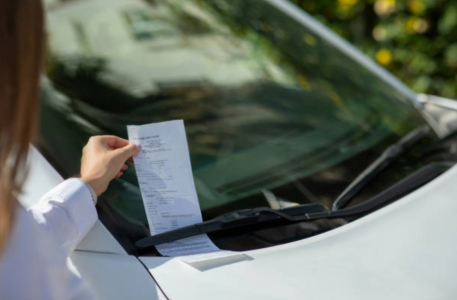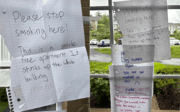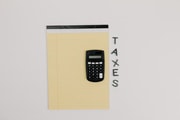Parking here could cost you $660—avoid this costly mistake
By
Gian T
- Replies 0
You're not alone if you’ve ever circled your block for what feels like hours, desperately searching for a parking spot.
With our cities growing busier and streets getting more crowded, finding a legal parking place can be a real headache—especially in densely populated suburbs.
But before you decide to squeeze your car across a neighbour’s driveway 'just for a minute', you might want to think twice.
Parking across someone else’s driveway has long been a source of frustration for homeowners.
It’s not just an inconvenience; it can be a real disruption to daily life.
Imagine being late for an appointment, needing to rush a loved one to the hospital, or simply trying to get the kids to school—only to find your driveway blocked by a stranger’s car.
The Inner West Council, which covers some of Sydney’s most crowded and vibrant suburbs, received a staggering 4,393 complaints about driveway-blocking cars in just one year.
That’s more than a dozen complaints every single day! In response, the council has more than doubled the penalty for this offence, raising the fine from $330 to $660.
And if that’s not enough to make you think twice, your car could also be towed away.
The new rules are clear: if you park across someone else’s driveway and a resident complains, you could be hit with a $660 fine and have your car towed.
The council has made it clear that these penalties are only enforced after the affected resident makes a complaint.
So, if you’re blocking someone’s access—even partially—you’re at risk.
Importantly, residents who park across their own driveways won’t be fined or towed.
This is a relief for those who might have worried about being penalised for parking on their own property.
You might expect a backlash, but the response from locals has been 'overwhelmingly positive', according to the council.
Many residents have shared stories of being trapped in their own homes, unable to get their cars out when they needed them most.
Councillor Chloe Smith explained, 'There’s absolutely a need for tougher measures, particularly in the inner west where it’s densely populated.
We have narrow streets, and parking is at a premium.'
She recounted stories from families who couldn’t get their kids to childcare and people unable to visit loved ones in hospital—all because someone else had blocked their driveway.
'It can be a really frustrating and galling experience for people,' she said.
While the Inner West Council has clarified that residents won’t be fined for parking across their own driveways, this isn’t always the case everywhere in Australia.
In a recent incident on the Gold Coast, a mum was shocked to receive a nearly $200 fine for parking on her own driveway.
The local council explained that part of her driveway was technically on council land, making it illegal to park there—even though she’d never had a problem before.
A similar story emerged from Perth, where another resident was fined after parking on her own driveway for over a year without issue.
These cases highlight the importance of knowing the specific rules in your local area, as regulations can vary from council to council.
While it might seem harsh, these rules are designed to ensure fair and safe use of public spaces.
Blocking a driveway doesn’t just inconvenience the homeowner—it can also force pedestrians, including those with prams or mobility aids, onto the road if the footpath is blocked.
Councils are also keen to keep emergency access routes clear at all times.
If you find yourself on the receiving end of a fine, don’t panic. First, check the details of the infringement notice and take photos of where your car was parked.
If you believe the fine was issued in error—say, you were parked entirely on your own property—you can appeal to your local council.
However, if you were blocking someone else’s driveway, it’s unlikely you’ll have much luck contesting the penalty.
To avoid a costly mistake, always check for driveways before parking, even if it’s only for a few minutes.
Be mindful that local council rules can vary between suburbs, so what’s allowed in one area might not be in another.
If you’re expecting visitors, remind them not to block any driveways—including your own. And if there’s any doubt, it’s safest to park somewhere else.
With fines now as high as $660 in some areas, parking across a driveway is a risk not worth taking.
A few extra minutes spent finding a legal spot could save you a lot of money—and a lot of hassle.
Stay safe, and let’s keep our neighbourhoods accessible for everyone!

Ever had to deal with someone blocking your driveway—or been unsure if you were blocking someone else’s? Have local parking rules in your suburb ever caught you off guard? Let us know in the comments below.
With our cities growing busier and streets getting more crowded, finding a legal parking place can be a real headache—especially in densely populated suburbs.
But before you decide to squeeze your car across a neighbour’s driveway 'just for a minute', you might want to think twice.
Parking across someone else’s driveway has long been a source of frustration for homeowners.
It’s not just an inconvenience; it can be a real disruption to daily life.
Imagine being late for an appointment, needing to rush a loved one to the hospital, or simply trying to get the kids to school—only to find your driveway blocked by a stranger’s car.
The Inner West Council, which covers some of Sydney’s most crowded and vibrant suburbs, received a staggering 4,393 complaints about driveway-blocking cars in just one year.
That’s more than a dozen complaints every single day! In response, the council has more than doubled the penalty for this offence, raising the fine from $330 to $660.
And if that’s not enough to make you think twice, your car could also be towed away.
The new rules are clear: if you park across someone else’s driveway and a resident complains, you could be hit with a $660 fine and have your car towed.
The council has made it clear that these penalties are only enforced after the affected resident makes a complaint.
So, if you’re blocking someone’s access—even partially—you’re at risk.
Importantly, residents who park across their own driveways won’t be fined or towed.
This is a relief for those who might have worried about being penalised for parking on their own property.
You might expect a backlash, but the response from locals has been 'overwhelmingly positive', according to the council.
Councillor Chloe Smith explained, 'There’s absolutely a need for tougher measures, particularly in the inner west where it’s densely populated.
We have narrow streets, and parking is at a premium.'
She recounted stories from families who couldn’t get their kids to childcare and people unable to visit loved ones in hospital—all because someone else had blocked their driveway.
'It can be a really frustrating and galling experience for people,' she said.
While the Inner West Council has clarified that residents won’t be fined for parking across their own driveways, this isn’t always the case everywhere in Australia.
The local council explained that part of her driveway was technically on council land, making it illegal to park there—even though she’d never had a problem before.
A similar story emerged from Perth, where another resident was fined after parking on her own driveway for over a year without issue.
These cases highlight the importance of knowing the specific rules in your local area, as regulations can vary from council to council.
While it might seem harsh, these rules are designed to ensure fair and safe use of public spaces.
Councils are also keen to keep emergency access routes clear at all times.
If you find yourself on the receiving end of a fine, don’t panic. First, check the details of the infringement notice and take photos of where your car was parked.
If you believe the fine was issued in error—say, you were parked entirely on your own property—you can appeal to your local council.
However, if you were blocking someone else’s driveway, it’s unlikely you’ll have much luck contesting the penalty.
To avoid a costly mistake, always check for driveways before parking, even if it’s only for a few minutes.
If you’re expecting visitors, remind them not to block any driveways—including your own. And if there’s any doubt, it’s safest to park somewhere else.
With fines now as high as $660 in some areas, parking across a driveway is a risk not worth taking.
A few extra minutes spent finding a legal spot could save you a lot of money—and a lot of hassle.
Stay safe, and let’s keep our neighbourhoods accessible for everyone!
Key Takeaways
- The Inner West Council in Sydney has increased the fine for parking over someone else’s driveway from $330 to $660, with the possibility of having vehicles towed.
- The move comes after thousands of complaints from residents about cars blocking their driveways on crowded streets.
- Residents who park across their own driveways will not be fined or have their vehicles towed under the new rules.
- Councillors and affected residents support the stricter penalties, saying they’re necessary for densely populated suburbs where parking is limited.








